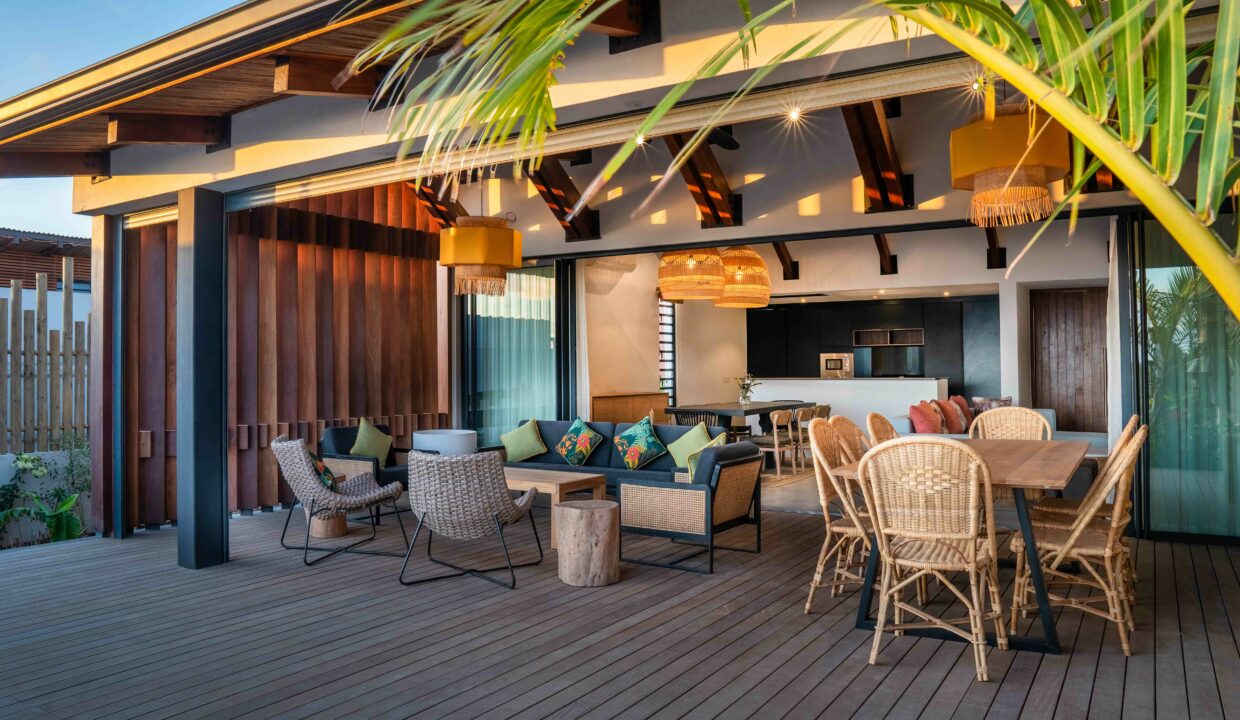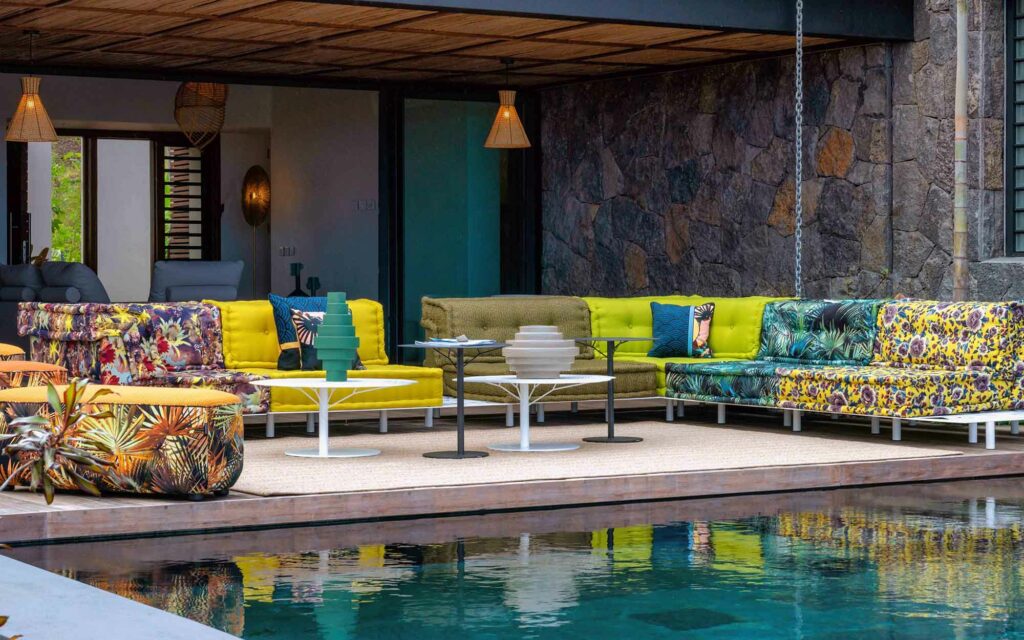
For many people, investing in property is an important goal. However, tax constraints, the various costs to be anticipated and the difficulty of finding the ideal property can discourage many.
In an uncertain economic climate in many parts of the world, marked by galloping inflation and a declining property market, many people are abandoning their plans to invest in property.
What if broadening your horizons was the key to finding happiness? Mauritius is proving to be a veritable Eldorado. Known for its postcard-perfect scenery and tourist charm, this island paradise is also attractive for its economic and tax advantages. These are essential assets for an ideal and lucrative property investment.
Attractive taxation
In addition to its idyllic setting, gentle serenity and varied activities, Mauritius offers particularly attractive tax benefits for foreign investors wishing to acquire property on the island, either to live in or to rent out:
- No double taxation. Thanks to the tax treaties signed between France and Mauritius, French investors buying a property in Mauritius are taxed on their property income only once, in Mauritius. There is no double taxation in France.
- No property or council tax.
- No inheritance tax to pay.
- No social security contributions (CSG/CRDS).
- A single Flat Tax of 15% applied to personal and property income. From 1 July 2023, the single rate of 15% will be replaced by a scale based on the amount of taxable income. The tax rate varies between 0% and a maximum of 20%.
- No tax on dividends.
- No capital gains tax on resale.
- No wealth tax.
Knowing the different schemes for investing in Mauritius
IRS, RES et PDS
The Integrated Resort Scheme (IRS), the Real Estate Scheme (RES) and the Property Development Scheme (PDS) are schemes designed to facilitate the purchase of property in Mauritius by non-residents. These schemes allow the development and sale of luxury residential properties to foreigners.
They offer the opportunity to buy top-of-the-range villas or flats in residential complexes. These properties are also available as VEFA (Vente en l’Etat Futur d’Achèvement), similar to the practice in France.
Villas are generally equipped with high-quality facilities that are accessible to all residents (sports grounds, spas, children’s play areas, etc.). They also offer shared services (cleaning, concierge, security, etc.).
These schemes encourage the development and purchase of luxury residences in Mauritius by foreign investors. They are the most commonly used schemes for acquiring property on the island. Since 2016, the PDS has replaced the IRS and RES schemes.

Good to know: if the value of the property exceeds US$375,000 (or the equivalent in other currencies), you automatically obtain a permanent residence permit, which is also valid for your spouse and members of your tax household. This permit is valid for as long as you own property on the island and is transferable if there is a change of ownership. You are considered a Mauritian tax resident if you reside in Mauritius for more than 183 days a year.
Particular case: if the property purchase is made via an SCI (Société Civile Immobilière) or another form of company involving several investors, only one of them will be able to obtain the residence permit. However, it is possible to transfer this permit subject to notification of the competent authorities.
G+2
Also introduced in 2016, the G+2 scheme allows any foreign investor to buy a freehold flat in a building with at least two floors. The price of the property must be at least MUR 6,000,000 (or the equivalent in convertible foreign currency).
Unlike the PDS scheme, the G+2 scheme does not offer access to permanent residence or tax residency, but it is possible to obtain a 6-month residence permit if the price of the property exceeds US$375,000. The scheme also allows the property purchased to be rented out, generating tax-free rental income in France.
SCS
Launched in 2015 by the Mauritian government, the Smart City Scheme (SCS) aims to create new urban spaces that respect the environment, integrating residences, offices, medical services, shops, leisure, sports and education. Foreign investors can acquire villas, houses, flats, duplexes, residential plots and offices within these areas. A residence permit is issued for properties costing more than US$375,000. This allows you to be domiciled in Mauritius for tax purposes, provided you reside on the island for more than 183 days a year.
Investing in Mauritius: the advantages
In addition to its particularly attractive tax regime, Mauritius offers an exceptional living environment, much appreciated by foreign investors. Its lagoons, white sandy beaches, breathtaking scenery, tropical climate and relaxed lifestyle appeal to everyone. Economically, the island continues to grow year on year. The Mauritian economy is even considered one of the best performing in Africa.
There are many advantages to investing for French and foreign buyers:
- Seasonal rental demand is constantly on the rise.
- A return of between 4% and 10% on a property investment.
- Top-of-the-range, modern, quality properties, perfect for living in or renting out.
- A stable social and political context since 1968.
- A safe environment.
- A judicial system independent of political power, offering the same guarantees to foreign investors as to Mauritians.
- A dynamic financial sector.
- Enhanced protection for investors through investment protection agreements.
- A high-performance healthcare system.
- Renowned international schools.
- A multilingual population: although English is the official language, Mauritians also speak French.
The procedure for investing in Mauritius
To invest in property in Mauritius, you need to follow a precise procedure:
Application for EDB approval
The first step is to submit a written application to the Economic Development Board (EDB) in Mauritius, together with a number of documents: a copy of your passport, a letter of recommendation from a bank, etc.
Signature of the preliminary reservation contract (CRP)
Once you have obtained the EDB’s approval, you must sign the preliminary reservation contract (CRP), the equivalent of the compromis de vente in France. This contract blocks the reservation of the property. Once the CRP has been signed, you have 15 days to pay a deposit. This is equivalent to 10% of the price of the property, paid into an escrow account opened in the name of the notary. If the purchase is a VEFA (Vente en l’Etat Futur d’Achèvement), this percentage can rise to 25%. In this case, the deposit is paid when the deed of sale is signed. If the deed of sale is signed between 1 and 2 years after the CRP was signed, the deposit must not exceed 2%. After two years, no deposit is required.
Signature of the deed of sale
Once the reservation has been confirmed, you can sign the deed of sale in the presence of a Mauritian notary. At this stage, you will also pay the remaining balance (90%). For VEFA sales, payments are made according to the progress of work, as stipulated in the CRP.
Notary fees
As in France, the purchase of a property in Mauritius involves notary fees payable by the investor. These represent 1.15% (including tax) of the price of the property, in the context of property schemes aimed at foreign investors.
Land Transfer Tax
Finally, both the buyer/investor and the seller/developer pay a property transfer tax of 5% of the price of the property.
Where to invest in Mauritius?
Mauritius offers a wide range of properties: villas, flats, houses, duplexes, bungalows and more. Depending on your objective – to invest for rental or to live in – some locations are more suitable than others: seaside, urban proximity, nature, amenities, etc.
Find all the top destinations in Mauritius in the Côté Sud property catalogue.
Domaine d’Anbalaba, the new place to live in the south of Mauritius.
Located in Baie du Cap, Domaine d’Anbalaba is surrounded by mountains and the island’s best kitesurfing spots. It is set in the heart of a picturesque fishing village, giving it a unique charm. With its peaceful, timeless atmosphere, lush vegetation and superb beaches nearby, Domaine d’Anbalaba is an ideal location for foreign investors looking for authenticity and sustainable tourism.
By choosing to invest in the Domaine d’Anbalaba, you will benefit from a comprehensive rental management service and an attractive rental yield.
Contact us for more information about buying at Domaine d’Anbalaba or any of our other developments in Mauritius!


